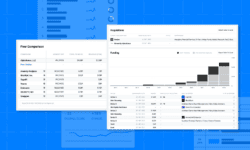Investor Relations teams at small- and mid-cap companies have always struggled to get and maintain sell-side analyst research coverage. Then the EU’s MiFID II regulation came along, adding to the challenge for U.S. listed companies due to the global nature of capital markets.
MiFID II: Immediate and delayed impact
MiFID II became effective across the EU as of January 3, 2018. Its immediate impact was on business models of sell-side firms in Europe, but it also had significant implications on firms based in the U.S. The Securities and Exchange Commission issued a series of no-action letters on October 15, 2017 to delay as much of the impact to U.S. companies as possible for 30 months, recognizing how rapidly U.S. research firms and listed companies could be affected.
Brief: The State Of Research Under MiFID II
ESG/Sustainability: Strategic differentiator for companies (and the sell-side)
MiFID II is already affecting, and will continue to affect, research firms’ business model adaptation efforts and smaller company sell-side coverage in the U.S. through the 30 months reprieve, which will expire Spring 2020. There is now a short window of opportunity for smaller U.S. companies to strategically position themselves to try to maintain or even grow investor and analyst attention by expanding ESG/Sustainability disclosure.
In a recent Associated Press article, Hank Boerner, Chairman and CEO, of Governance and Accountability Institute, highlighted that:
“The trends we have tracked in S&P 500 reporting is now moving down the market-cap pyramid to companies in the Russell 1000 and even the Russell 2000. The S&P 500 companies are the corporate sector top leaders in ESG reporting…engaging with their investors and stakeholders, and enhancing their disclosure.”
Validation of this trend can be interpreted from results of a recent AlphaSense search on ‘ESG Sustainability AND Profitability’ over the last 12 months. The search found 56 small and mid-cap companies across 10 sectors referencing sustainability, commitment, cost and profitability – as well as other mentions related to supply chain benefit.
Attention to ESG/Sustainability in mainstream investment decision-making is on the rapid rise. Being able to address companies’ ESG/Sustainability relative performance could present opportunities to bring sell-side syndicated research to a new level of purposeful differentiation.
What are you waiting for?
Direct cap-size competitors may be ahead of you in using sustainability reporting to attract coveted capital market stakeholders’ attention and investment capital allocation that you would like to win instead. ESG/Sustainability can be a compelling differentiator and ROI contributor.
Pamela Styles is principal of Next Level Investor Relations LLC, a strategic consultancy with dual Investor Relations and ESG / Sustainability specialties.




